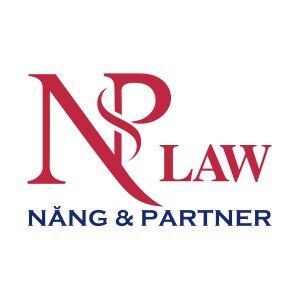Best Probate Lawyers in Hanoi
Share your needs with us, get contacted by law firms.
Free. Takes 2 min.
List of the best lawyers in Hanoi, Vietnam
About Probate Law in Hanoi, Vietnam:
Probate law in Hanoi, and Vietnam at large, plays an essential role in settling estates after the death of an individual. It involves cataloguing the deceased's assets, paying remaining debts, and distributing the remaining estate to beneficiaries in accordance with the decedent’s will, or in its absence, according to Vietnam's inheritance laws. One important factor to note is that Vietnam’s inheritance laws recognize both legitimate and illegitimate children, and spouses have inheritance rights whether or not they are named in a will.
Why You May Need a Lawyer:
Engaging a lawyer in probate matters is often advisable due to the complexity of the procedures involved. Some of these scenarios include contesting a will, resolving disputes between beneficiaries, distributing assets if there is no will, and navigating the intricacies of probate laws and taxes. A lawyer can also help hasten the probate process, which can be lengthy and complicating, particularly if faced with litigation or disputes.
Local Laws Overview:
The primary legislation governing probate in Vietnam is the Civil Code of 2015 and the Law on Marriage and Family of 2014. Collectively, these laws stipulate that estates can be shared by parents, spouse, offspring, adopted children and individuals who cared for and financed the deceased. In the absence of a will, the estate is divided equally among the heirs. On the other hand, if a will is present, the law honors the will’s provisions unless they contradict Vietnamese legal principles.
Frequently Asked Questions:
1. Who can inherit in the absence of a will?
If an individual dies intestate (without a will), their assets are divided equally amongst their children, spouse, and parents. Those who took care of the deceased can also be considered.
2. What happens if there are claims against the deceased's estate?
If there are claims against the deceased's estate, they must be settled before distribution of the assets. A probate lawyer can guide you through this process.
3. Can a will be contested in Hanoi, Vietnam?
Yes, a will can be contested if there is evidence of fraud, coercion, or if the deceased did not have testamentary capacity when signing the will.
4. Are all of the deceased's assets subject to probate?
Not all assets are subject to probate. Assets that have named beneficiaries, such as life insurance policies or joint properties, typically bypass the probate process.
5. How are taxes managed in a probate process?
Taxes that are due from the deceased or their estate must be settled before distribution of the assets. These might include income tax, capital gains tax, and inheritance tax.
6. What is the role of the executor or administrator of a will?
The executor or administrator is responsible for administering the estate. This includes paying debts, filing taxes, distributing assets, and liaising with beneficiaries.
7. How long does probate usually take in Hanoi, Vietnam?
The duration varies depending on the complexity of the estate, but generally probate processes can take from 6 months to a year or more.
8. Which court handles probate in Hanoi, Vietnam?
The local district court where the deceased was living at the time of death has jurisdiction over the probate proceedings.
9. Can a foreigner inherit property in Vietnam?
Foreigners can inherit property in Vietnam, but there are restrictions on ownership, transferal of property rights, and obtaining a land use rights certificate.
10. What happens if someone dies without any known relatives?
If a person dies without any known relatives, the estate is handed over to the state after due probate process.
Additional Resources:
Reliable sources for probate laws in Hanoi, Vietnam include the Hanoi Department of Justice and the Ministry of Justice. The local court and government websites also provide useful information on probate proceedings and inheritance laws.
Next Steps:
If you need legal assistance in probate, it is recommended to seek qualified legal help to guide you through the process. This includes hiring a reputable probate attorney who has comprehensive knowledge of local laws and procedures. They can guide you through the probate process, assist in preparing necessary paperwork, navigate any existing disputes and ensure compliance with relevant tax laws.
Lawzana helps you find the best lawyers and law firms in Hanoi through a curated and pre-screened list of qualified legal professionals. Our platform offers rankings and detailed profiles of attorneys and law firms, allowing you to compare based on practice areas, including Probate, experience, and client feedback.
Each profile includes a description of the firm's areas of practice, client reviews, team members and partners, year of establishment, spoken languages, office locations, contact information, social media presence, and any published articles or resources. Most firms on our platform speak English and are experienced in both local and international legal matters.
Get a quote from top-rated law firms in Hanoi, Vietnam — quickly, securely, and without unnecessary hassle.
Disclaimer:
The information provided on this page is for general informational purposes only and does not constitute legal advice. While we strive to ensure the accuracy and relevance of the content, legal information may change over time, and interpretations of the law can vary. You should always consult with a qualified legal professional for advice specific to your situation.
We disclaim all liability for actions taken or not taken based on the content of this page. If you believe any information is incorrect or outdated, please contact us, and we will review and update it where appropriate.













